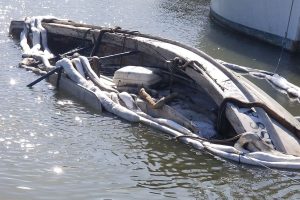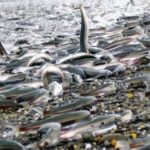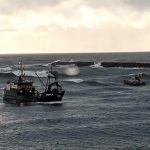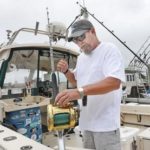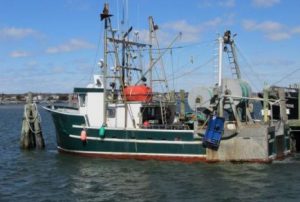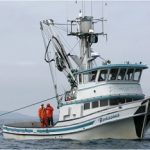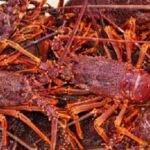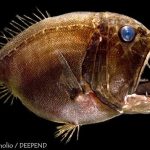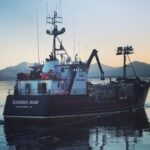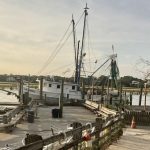Tag Archives: Department of Environmental Protection
The offshore wind debate could influence this federal election and it’s already an ‘absolute blood-fest’

“Get out of our town, Albo!” the man yelled. “We don’t want your wind farms!”
The Illawarra, on the NSW south coast, can be hostile territory for Australian politicians. In 1939, Robert Menzies was booed by thousands of placard-waving locals as police escorted him down the Bulli Pass to meet striking waterside workers in Wollongong. Fast forward to 2025 and it was Anthony Albanese’s turn to feel the heat down near the steelworks. During a February press conference announcing his new candidate for Whitlam, he copped a gobful from a man dressed in a tan shirt and black shorts. “Get out of our town, Albo!” the man yelled. “We don’t want your wind farms!” That protester was financial adviser Alex O’Brien, who is not just another local resident. Mr. O’Brien is, in fact, president of a not-for-profit association called Responsible Future (Illawarra Chapter) or RFI, whose purpose is to tank Labor’s proposed offshore wind project in the Illawarra. more, >>CLICK TO READ<< 10:53
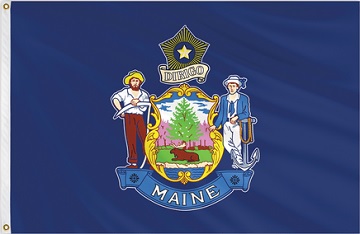
Maine’s fishermen and farmers are under assault – When a flag is more than a symbol
With the livelihoods of both Maine’s fishermen and farmers under assault, Sam Patten talks about the importance of keeping the traditional state flag. In the event this should come up again, (Last year, the Maine Legislature shot down a bill,) I’d go a step further and suggest that changing the state flag is anti-human, and anti-Mainer. Does this take the question to the extreme? Maybe, but it matters. Right now, both fishermen and farmers in Maine are under assault. The National Oceanic and Atmospheric Administration has put in place restrictions on the lobster fishing industry in an ill- conceived effort to save the endangered right whale. Science does not support NOAA’s finding, but well-heeled environmentalists do. So does the wife of the chief-of-staff to the president of the United States. Meanwhile, the question of “forever chemicals,” or PFAS, has already spelt ruin for some Maine farmers whose soil was contaminated,,, >click to read< 15:47
conceived effort to save the endangered right whale. Science does not support NOAA’s finding, but well-heeled environmentalists do. So does the wife of the chief-of-staff to the president of the United States. Meanwhile, the question of “forever chemicals,” or PFAS, has already spelt ruin for some Maine farmers whose soil was contaminated,,, >click to read< 15:47

10 fisheries in N.J. may have wrongly received millions in pandemic money
In its first report detailing the waste, fraud and abuse of the distribution of federal COVID funds, a state watchdog agency said nearly $2.4 million in CARES Act funding may have been improperly paid out to fisheries in New Jersey. The Office of the State Comptroller (OSC), which is tasked with tracking the distribution of federal COVID funding, said 10 marine fisheries in New Jersey received more money than they lost because of the pandemic in 2020. The state report did not name the fisheries that received the funds. >click to read< 19:08
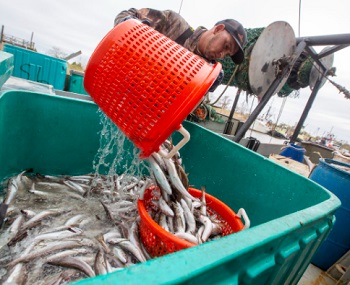
Coronavirus relief: N.J.’s sinking fishing industry nabs $11M life raft from state
Nearly a year after being approved by federal lawmakers, financial relief is being handed out to New Jersey’s battered fishing industry. Gov. Phil Murphy and the New Jersey Department of Environmental Protection announced Friday that $11.3 million in grants are being distributed to Garden State fishermen, and the businesses that support them. The relief money was part of the $2 trillion CARES Act which was passed by Congress and signed by former President Donald Trump in March. >click to read< 09:47
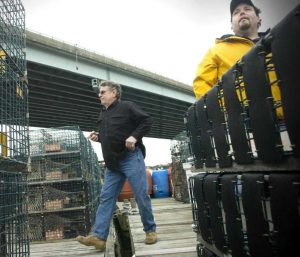
This day in Stamford history: 10 years ago – Lobster catches keep falling
The state’s commercial lobster catch fell to its lowest level in 25 years in 2008, according to the state Department of Environmental Protection. The continuing decline in the Long Island Sound lobster population is likely to lead to new size restrictions as the state grapples with the lobster die-off that started in the late 1990s, the DEP said. State lobstermen took in 387,306 pounds of lobster last year, a 31 percent drop from 2007 when fishermen pulled in 568,169 pounds, according to the DEP’s statistics, and barely a tenth of the 3.7 million pounds hauled in when measured catches topped out in 1998, >click to read<13:20
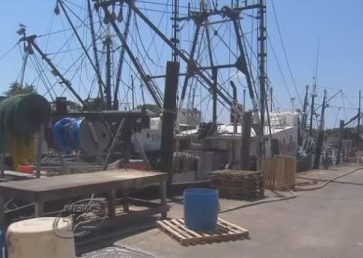
New Jersey – Governor Murphy signs bill for marine fisheries management
A bill to provide an extra $1.2 million to the state Bureau of Marine Fisheries for shellfish and fisheries management was signed into law Friday by Governor Murphy. It’s an increase to the $2.468 million allocated in the Governor’s proposed FY2019 budget, said bill sponsors, bringing the total appropriation to $3.668 million for the coming fiscal year. New Jersey has 6 major commercial fishing ports which this law would primarily affect, although the law would affect other ports as well: Atlantic City, Barnegat Light, Belford in Monmouth County, Cape May, Point Pleasant and Port Norris. New Jersey’s commercial fishermen catch more than 100 million pounds of seafood each year, worth more than $100 million, the sponsors said. >click to read<13:48

Trump Administration Dives Into Fish Fight
An unprecedented Trump administration decision over the summer that overruled an interstate fishing commission has drawn the ire of critics who worry that keeping a healthy and viable supply of flounder in the Atlantic Ocean is being sacrificed to commercial profits. While the fight over fish largely has been out of the public eye, it has implications for Maryland and other coastal states. In July, Secretary of Commerce Wilbur Ross overruled a recommendation by the Atlantic States Marine Fisheries Commission finding New Jersey out of compliance with proposed 2017 harvest limits of summer flounder along the Atlantic coast. click here to read the story 15:28
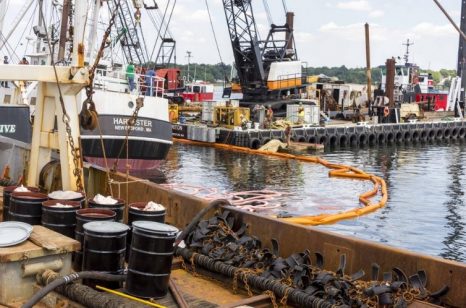
Coast Guard makes a push to curb harbor oil spills
Coast Guard Lt. Lynn Schrayshuen along with Marine Science Technician Third Class John Northrup peered into the dark water alongside Coal Pocket Pier at the city waterfront, looking for the tell-tale rainbow sheen of an oil spill. On this recent morning, they came up pretty much empty, with the exception of a small patch of oil alongside the hull of a fishing boat, too little and too dispersed after time elapsed to make an effective sample. It is not always this good. The previous morning, Northrup said, there were three spills that he discovered. In past years, there have been spills of hundreds of gallons of oil. Sometimes the Department of Environmental Protection or the Coast Guard can trace the spills, but oftentimes not. click here to read the story 18:41
In Compliance! Federal government upholds NJ’s flounder regulations; 18-inch size limit affirmed
 The National Oceanic and Atmospheric Administration and U.S. Secretary of Commerce Wilbur Ross notified New Jersey officials Tuesday that the state’s 2017 flounder regulations were in compliance for management of the fishery stock and would not need to be changed. “We are very pleased that NOAA worked with us to understand our position that sound science and good long-term planning must drive decisions about the management of summer flounder, one of the state’s most important recreational and commercial fish species,” state Department of Environmental Protection Commissioner Bob Martin said Tuesday afternoon. “New Jersey is fully committed to employing science and public education to conserve a species that is critical to the fishing culture and economy of the state.” The decision follows months of contentious debate about the issue between New Jersey officials and the Atlantic State Marine Fisheries Commission, which had called for the state to implement a stricter 19-inch size limit. click here to read the story 19:43
The National Oceanic and Atmospheric Administration and U.S. Secretary of Commerce Wilbur Ross notified New Jersey officials Tuesday that the state’s 2017 flounder regulations were in compliance for management of the fishery stock and would not need to be changed. “We are very pleased that NOAA worked with us to understand our position that sound science and good long-term planning must drive decisions about the management of summer flounder, one of the state’s most important recreational and commercial fish species,” state Department of Environmental Protection Commissioner Bob Martin said Tuesday afternoon. “New Jersey is fully committed to employing science and public education to conserve a species that is critical to the fishing culture and economy of the state.” The decision follows months of contentious debate about the issue between New Jersey officials and the Atlantic State Marine Fisheries Commission, which had called for the state to implement a stricter 19-inch size limit. click here to read the story 19:43
N.J.’s fluke question will be answered next week
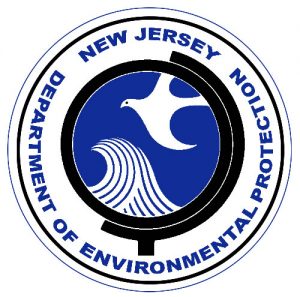 New Jersey will get an answer to the question of whether the state is out of compliance with its 18-inch summer flounder regulation next week. State officials from the Department of Environmental Protection were able to plead their case to NOAA Fisheries on a June 27 conference call. “We were able to go into great detail about the data behind New Jersey’s management measures that will conserve more fish and reduce the number of larger breeding females removed from the fishery, and therefore provide stronger recruitment for the future,” said NJDEP Spokesperson Bob Considine. click here to read the story 09:36
New Jersey will get an answer to the question of whether the state is out of compliance with its 18-inch summer flounder regulation next week. State officials from the Department of Environmental Protection were able to plead their case to NOAA Fisheries on a June 27 conference call. “We were able to go into great detail about the data behind New Jersey’s management measures that will conserve more fish and reduce the number of larger breeding females removed from the fishery, and therefore provide stronger recruitment for the future,” said NJDEP Spokesperson Bob Considine. click here to read the story 09:36
Garden State officials make their case to feds as fluke battle rages on
With New Jersey’s summer flounder fishing industry on the line, Garden State officials made their case to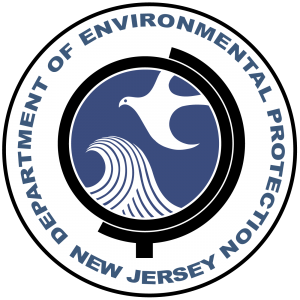 fisheries on Tuesday afternoon. In a hearing with the federal agency, New Jersey Department of Environmental Protection officials argued that the state’s regulations for summer flounder (or fluke) fishing reach conservation equivalency with new federal regulations. The cornerstone of New Jersey’s argument: That the state’s proposed regulations will actually preserve more of the summer flounder stock than the measures being put forth by the feds. Tuesday’s call was closed to the press, but in a statement following the call NJDEP spokesperson Bob Considine described it as a “good discussion.” click here to read the story 08:37
fisheries on Tuesday afternoon. In a hearing with the federal agency, New Jersey Department of Environmental Protection officials argued that the state’s regulations for summer flounder (or fluke) fishing reach conservation equivalency with new federal regulations. The cornerstone of New Jersey’s argument: That the state’s proposed regulations will actually preserve more of the summer flounder stock than the measures being put forth by the feds. Tuesday’s call was closed to the press, but in a statement following the call NJDEP spokesperson Bob Considine described it as a “good discussion.” click here to read the story 08:37
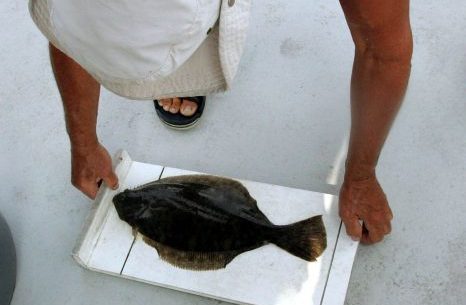
New Jersey has good reasons to resist federal rules on fluke
If federal fisheries managers got fan mail from some flounder these days, would it side with their catch limits or New Jersey’s defiant alternate rules? State and local officials and the N.J. congressional delegation pushed hard against this year’s federal plan to reduce the catch of summer flounder, also called fluke, by 30 percent. The Atlantic States Marine Fisheries Commission wanted to require fish to be an inch bigger to be kept — 19 inches in the ocean and nearby waters and 18 inches in Delaware Bay. Since last year’s limits were already tough on fishers and marine businesses, the plan prompted an uproar. Rep. Frank LoBiondo said “unelected bureaucrats in Washington use questionable methodologies and outdated science to cut us off at the knees.” He and fellow Rep. Frank Pallone introduced bipartisan legislation to prevent the new flounder quotas from taking effect. click here to read the story 10:28
NJ asks feds to drop limits on summer flounder
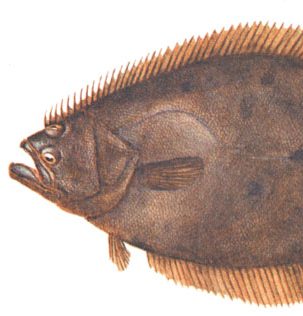 With their rows of sharp buck teeth, their downturned mouths, and both eyes on one side of their curiously flat bodies, summer flounder might seem beautiful only to one another. But this delicately flavored flatfish is the pinup girl, the heart’s desire, of thousands of New Jersey’s recreational fishermen — and has long been the source of many millions of dollars in tourism revenue each summer. For that reason the state has petitioned a federal commission to reverse its new restrictions on catching summer flounder in state waters in 2017. click to continue reading the story 07:06
With their rows of sharp buck teeth, their downturned mouths, and both eyes on one side of their curiously flat bodies, summer flounder might seem beautiful only to one another. But this delicately flavored flatfish is the pinup girl, the heart’s desire, of thousands of New Jersey’s recreational fishermen — and has long been the source of many millions of dollars in tourism revenue each summer. For that reason the state has petitioned a federal commission to reverse its new restrictions on catching summer flounder in state waters in 2017. click to continue reading the story 07:06
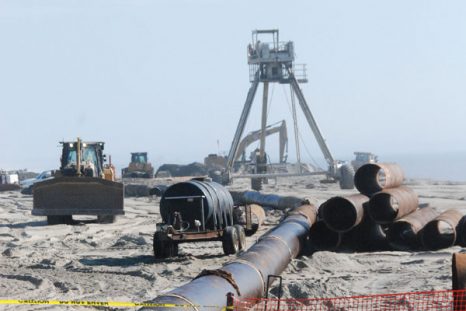
The Manasquan Ridge – Essential Fish Habitat or Common Borrow, and at what cost?
Beach replenishment is costly and exacts a heavy toll on the environment, depleting underwater ridges that are home to a broad variety of sea life. “This project is another important component of the Christie administration’s plan to bring engineered beaches and dunes to the entire coast,” state Department of Environmental Protection Commissioner Bob Martin said September 2, as he announced work would start soon on a new project, pumping another 3.8 million cubic yards of sand from the sea floor onto eight miles of beach from Atlantic City to Longport. Fishermen question the cost to the environment from demands for more and more sand on the beaches. A seafloor survey of sand ridges off Manasquan commissioned in June by the federal Bureau of Ocean Energy Management raised alarms that the Corps of Engineers could dredge more sand from undersea hills that are essential fish habitat. Collectively known as the Manasquan Ridge, the hills attract seasonal concentrations of fish, and could be a future “borrow area,” where sand is extracted to pump onto nearby beaches. “They are already planning to use borrow areas closer to the beach,” said captain James Lovgren of the Fishermen’s Dock Cooperative in Point Pleasant Beach, who, with other fishermen, met with DEP officials in late July regarding their concerns about sand mining. Read the story here 09:16
What killed the sharks off Lavallette?
 Barbara Macheska of Toms River counted more than a dozen dead sand sharks over the past month during her nearly half-mile walks on the beach near her barrier island home. “About a month ago, in a three day period, I found 10 sand sharks. The majority were barely alive,” she said. “Last week I found seven more.” The dead sharks were so numerous that the state was alerted. Caryn Shinske, a spokeswoman for the department, said a large number of dogfish, a sand-colored bottom-feeding small shark, had washed ashore in Ocean County in recent weeks. (We found no reference to dogfish washing ashore in Ocean County) Read the rest here 17:17
Barbara Macheska of Toms River counted more than a dozen dead sand sharks over the past month during her nearly half-mile walks on the beach near her barrier island home. “About a month ago, in a three day period, I found 10 sand sharks. The majority were barely alive,” she said. “Last week I found seven more.” The dead sharks were so numerous that the state was alerted. Caryn Shinske, a spokeswoman for the department, said a large number of dogfish, a sand-colored bottom-feeding small shark, had washed ashore in Ocean County in recent weeks. (We found no reference to dogfish washing ashore in Ocean County) Read the rest here 17:17
Christie administration sues to halt ocean-blasting research
The state attorney general’s office filed a complaint Friday in U.S. District Court arguing the federally funded seismic research project that began this week will harm fish and marine animals, as well as commercial fisheries and beachgoers just as the summer tourism season gears up.The National Science Foundation-funded research, being performed by Rutgers University, is aimed at helping the world’s coastal regions better protect themselves from disasters like Superstorm Sandy by mapping ocean sediment deposits dating back 60 million years to study how the shoreline has advanced and retreated in response to rising sea levels. Read the rest here 22:00
Sandy grant program open to N.J. fishing businesses – From NOAA federal fishery disaster declaration fund
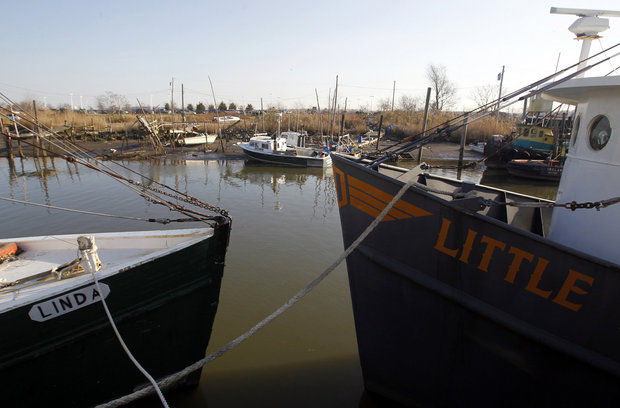 Fishing businesses upended by Hurricane Sandy may be eligible for up to $10,000 in grants to recover from the 2012 storm that tossed around boats and splintered apart docks. The money is available for party and charter boat operators, commercial dealers and commercial fishermen and owners of aquaculture businesses, marinas and bait and tackle shops through a $2.1 million program announced by the state Department of Environmental Protection today. Read more here 07:52
Fishing businesses upended by Hurricane Sandy may be eligible for up to $10,000 in grants to recover from the 2012 storm that tossed around boats and splintered apart docks. The money is available for party and charter boat operators, commercial dealers and commercial fishermen and owners of aquaculture businesses, marinas and bait and tackle shops through a $2.1 million program announced by the state Department of Environmental Protection today. Read more here 07:52
New Jersey asks judge to block ocean blasting plan
BARNEGAT LIGHT, N.J. (AP) — New Jersey environmental officials went to federal court Thursday trying to block a federally approved research plan that involved blasting the ocean floor off New Jersey with loud sound waves. Read more here 20:54
Fairhaven Shipyard neighbors worry about shipyard reconfiguration
![]() FAIRHAVEN — The Fairhaven is asking the state Department of Environmental Protection for permission to reconfigure docks in the North Yard, and neighbors worry the move could result in more pollution. Read more here 06:16
FAIRHAVEN — The Fairhaven is asking the state Department of Environmental Protection for permission to reconfigure docks in the North Yard, and neighbors worry the move could result in more pollution. Read more here 06:16
Fairhaven Shipyard’s North Yard becomes the Board of Health and Selectmen candidates’ night “political football”
 Three of the candidates agreed that the town should follow the lead of the Department of Environmental Protection, which is currently investigating the shipyard. Charlie Murphy, Steven Riley and Jeanine Lopes all agreed to help enforce whatever mitigation the state agency determines is appropriate. But Board of Health challenger Louise Barteau separated herself from the pack,,,Read more here 08:06
Three of the candidates agreed that the town should follow the lead of the Department of Environmental Protection, which is currently investigating the shipyard. Charlie Murphy, Steven Riley and Jeanine Lopes all agreed to help enforce whatever mitigation the state agency determines is appropriate. But Board of Health challenger Louise Barteau separated herself from the pack,,,Read more here 08:06
NJ plans new reef solely for recreational fishing
![]() New Jersey plans to create a new artificial fishing reef north of Barneget Inlet exclusively for the use of recreational fishermen. It’s the result of a compromise announced Thursday in a dispute between recreational and commercial fishing interests over access to artificial reefs off the coast. continue
New Jersey plans to create a new artificial fishing reef north of Barneget Inlet exclusively for the use of recreational fishermen. It’s the result of a compromise announced Thursday in a dispute between recreational and commercial fishing interests over access to artificial reefs off the coast. continue


































